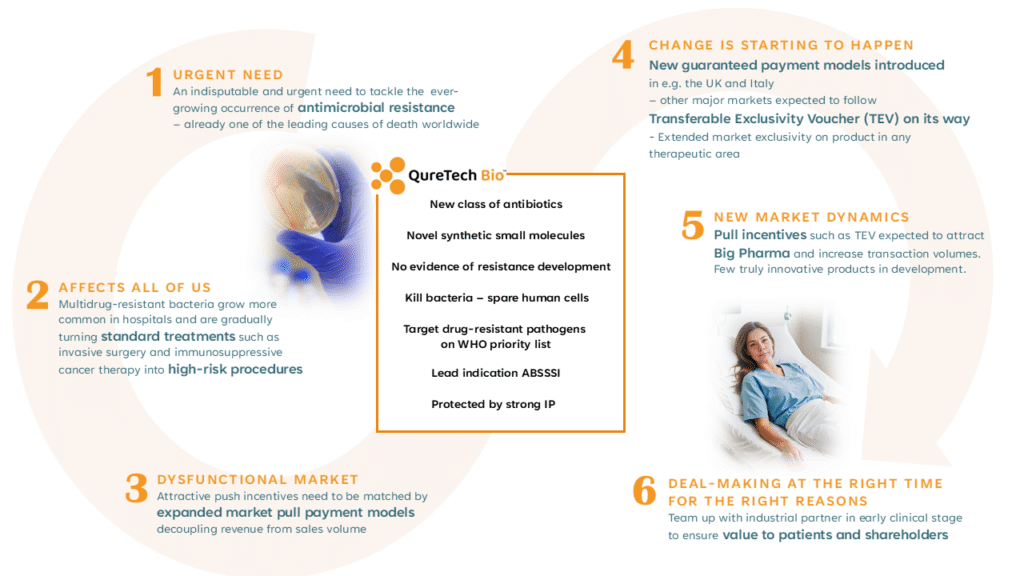Antimicrobial resistance
A major threat to global health
A global and growing health crisis
Antimicrobial Resistance (AMR) has become one of the world’s greatest threats to public health, with over 1.27 million deaths worldwide today, and an estimated 10 million deaths a year by 2050.
Antibiotic resistance is a serious public health concern and is considered one of the biggest threats to global health today by worldwide actors including the World Health Organization (WHO). Bacterial infections cause around 7.7 million deaths yearly, and about 1.27 million people die every year due to infections caused by drug-resistant bacteria making drug-resistant infections a leading cause of deaths worldwide. Already today, more people die from antimicrobial resistance (AMR) than from HIV/AIDS, malaria or breast cancer, and the problem of AMR is growing. Antimicrobial resistance is a key public health concern across Europe and a central priority of the European health policy. The European Centre for Disease Control (ECDC) estimates that 33,000 patients in the EU die annually due to infections caused by resistant bacteria.
Infections caused by resistant bacteria place an immense burden on the healthcare system. In the EU alone, they are responsible for 16 million extra hospitalization days every year. According to OECD, antimicrobial resistance could cost up to USD 3.5 billion per year in Europe, North America and Australia the coming years.
Antibiotics are essential for modern medicine
Without effective antibiotics common diseases could become untreatable and the success of major surgery and chemotherapy would be at risk.
There is a wide range of antibiotics on the market, but due to the rapid development of resistance, there is an urgent need for new treatment options. Patients affected by resistant bacteria have few or no options today, and for patients with allergy to standard antibiotics the situation is even worse.
The current pipeline is insufficent to address the need
Only 16 new antibacterials have been approved worldwide since 2017, and there are only 97 projects in clinical development for the treatment of bacterial infections.
The current pipeline is insufficient to address the medical need for infectious disease in general, and there is a significant mismatch between the global burden of disease for bacterial infections and the number of clinical trials. Although almost 16% of global deaths are due to bacterial infections, less than 1.8% of the total number of Phase II and Phase III clinical trials relate to bacterial infections.
Unfortunately, there are far too few new antibiotics under development, something that was recently highlighted by the WHO as a major problem of concern for humanity. Only 97 new projects are in clinical development for the treatment of bacterial infections, compared to over 10,000 products for cancer. It is more than 30 years since a new class of antibiotics was last introduced, and only 16 new antibacterials have been approved worldwide since 2017.

